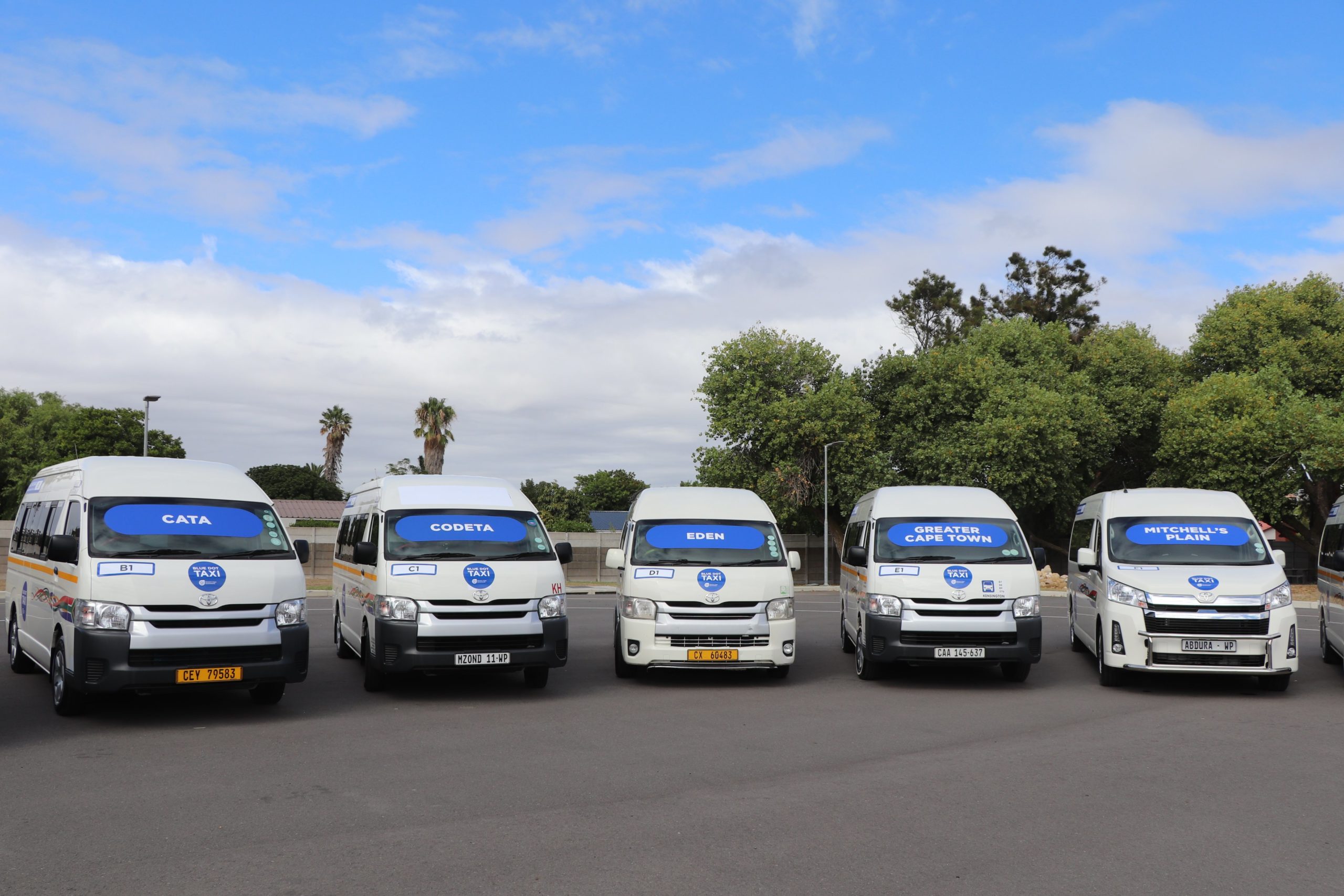Regional focus on the Western Cape: implementing an agile response

By Jessie Taylor
Connecting the dots for safer taxi commutes
As lockdown regulations ease and the economy further opens up, the Western Cape Government has introduced a pilot project to improve public transport services in the province. The project is aimed at the largest public transport sector in the province – minibus taxis.
Over nine months, around 1 300 minibus taxis across the province will take part in the incentive programme. The Blue Dot Taxi Service Pilot rewards improved driving behaviour and higher service quality while encouraging a reduction in illegal operations and conflict.
Fulfilling public transport needs
Western Cape Premier Alan Winde and Public Works Minister Bonginkosi Madikizela officially launched the pilot project in March, saying it responds to the urgent need to improve public transport in the Western Cape. The province relies on the minibus taxi sector to provide transport for commuters, especially in metros such as Cape Town where apartheid-style spatial planning has separated much of the workforce from economic hubs.
According to the Statistics SA National Household Travel Survey, released in March, over a third of residents in the province travel for work. Many of these trips are taken on a minibus taxi with statistics showing that over 4.8 million taxi trips were taken every month in the Western Cape in 2018. Comparatively, around a third of commuters make use of minibus taxis to travel to work, as opposed to the 1.6% commuting via train.
Madikizela adds: “The minibus taxi industry is vital to our economy, providing transport to hundreds of thousands of our citizens every day. In fact, minibus taxis move more people in the Western Cape than any other form of public transport.”
As the largest provider of public transport services in the province, minibus taxis deliver an essential service that is vital to the functioning of the economy. However, these services also experience several challenges including safety and quality issues, illegal operations, and violent conflict.
“These problems are aggravated by the industry’s current economic fundamentals which incentivise fare-chasing, destructive competition, recruitment of illegal operators, and route contestation. This is further exacerbated by a lack of government support and investment in the industry, which receives only about 1% of public transport funding nationally,” says Winde.
Madikizela said the industry has operated without significant investment and support from the government for far too long – something he believes will change significantly through the implementation of the Blue Dot Taxi Service.
“We are striving to fundamentally shift the industry’s existing economic drivers which incentivise fare-chasing, competition, recruitment of illegal operators, and route contestation. Today, we have gathered to celebrate a great milestone for public transport and the minibus taxi industry. Our engagements with the industry’s provincial and regional structures have been extremely positive, and the enthusiasm expressed for the project has been heartening to witness in these challenging times,” says Madikizela.
An innovative, agile response
The Blue Dot Taxi pilot project aims to address two of the industry’s most challenging issues, namely illegal operations and violent conflict. Under the programme, eight new companies have been established by the Western Cape’s regional taxi councils. These companies, along with the South African National Taxi Council’s (SANTACO) established company Umanyano Travel Services, will participate in the initiative.
Umanyano Travel Services was created to participate in the Province’s Red Dot Taxi Service, an ongoing partnership between the Western Cape Government and the provincial minibus taxi industry to deliver transport services in support of the fight against COVID-19. This project formed the basis for the development of the Blue Dot Taxi Service.
Winde says: “Our response throughout Covid-19 has been innovative, agile and responsive and the Red Dot Service has been a shining example of that. The Blue Dot service shows this government’s commitment to continuing to deliver services in a way that is innovative, and in a way that contributes to the key pillars of our recovery-jobs, safety and dignity and well-being. This will not only provide safer, more dignified transport but will also allow people to travel to work and to access economic opportunities while supporting jobs in the taxi industry.”
Participating taxis will each have distinctive Blue Dot branding so that they can be easily identified by passengers and the public.Participating vehicles will be fitted with a tracker, monitored by the government, and rewarded for good performance, including good customer service and improved driver behaviour. Passengers will be able to provide feedback on the service by cellphone, which will influence taxi ratings and rewards as well as raising standards.
Madikizela concludes: “Blue Dot Taxi has the potential to be a game-changer for public transport in the Western Cape, resulting in real and lasting improvement for both the passengers and the industry.”
How the Blue Dot Taxi Service works:
- Participating vehicles are fitted with tracking technology, monitored by the government, and rewarded for good performance.
- If you take a Blue Dot taxi you can rate the service anonymously by dialling *134*3047# at no cost. Alternatively, you can WhatsApp “Hi” to 073 249 2152 with the taxi’s unique number and your rating.
- Ratings should be based on whether the taxi speeding, driving safely, following the rules of the road over overly full.
The eight regions taking part in the Blue Dot taxi service pilot:
- Mitchells Plain
- Boland
- Eden
- Greater Cape Town
- Northern
- Two Oceans


.svg)











